News
Alternative beef for $3? Several firms are looking to hit that target
19 Aug 2021An ongoing criticism of meat alternatives is price. However, as grocery prices have risen globally as a result of pandemic-related supply chain repercussions, plant-based alternatives have found themselves able to take a bigger bite out of the protein market.
However, two firms aren’t willing to wait for the price of traditional meat to rise to meet that of alternative products. South Korea’s Seawith, which produces lab grown steak, and Moscow-based Welldone, which creates plant-based beef, are both aiming to undercut prices of traditional beef products within this decade.

Interestingly, these two firms do not hail from countries that are typically making headlines for their avant-garde focus on meat alternatives. Nevertheless, these two ambitious startups are looking to tackle the question with a price-first mentality.
Welldone announced in April that its 200-gram beef patties cost approximately $2.60, a slight upcharge compared to the same amount of animal beef, which in Russia costs around $2, The Spoon reported. But with price parity as the end goal for this Russian food tech startup, the company said that it will expand its production facility with the goal of producing 300 tons per month in order to take advantage of economies of scale and reach price parity with Russian beef.
Seawith is taking a slightly different route to reach its goal of selling its steaks for $3 per kilogram by 2030. The company has looked to microalgae as the basis for its culture media that it uses to create its lab grown steaks. Seawith’s Chief Technology Officer Heejae Lee told Food Navigator that, using this oceanic material, it can create cuts of meat up to one centimeter thick. Plus, microalgae is also a far cheaper medium with which to create meat analogs, according to Lee.
At this point, Seawith has only been able to convert 90% of its growth culture medium to a microalgae base. The remaining 10% is traditional media, but once that switch is made, the company said its prices will drop “dramatically.” Once prices do plummet, the startup's steak will be well under the price of its animal-based equivalents. South Korean beef is currently the most expensive in the world and retails for $61.41 per kg, beating out other high-cost markets like the U.S. and Singapore where prices are $24.18 and $20.83 per kilogram respectively.
Should these firms succeed in lowering their prices to be at or under the price of animal protein equivalents, there is a good chance that they will attract consumer attention as more and more consumers are interested in tasty, well-priced alternative products that allow them to reduce their overall meat consumption.
Related news
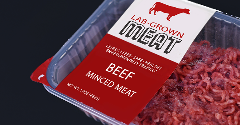
Israel approves Aleph Farms’ cell-cultured beef in world first
1 Feb 2024
Israel has granted the first regulatory approval for the commercial sale of cultivated beef, joining the US and Singapore in officially recognising cultivated meat’s role towards protein diversification.
Read more
Fazer and Solar Foods launch snack bar made with air protein
30 Jan 2024
Finnish food manufacturer Fazer has teamed up with foodtech startup Solar Foods to launch a limited-edition snack bar in Singapore made using a novel, carbon-fed microbial protein.
Read more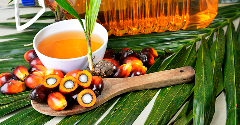
Big brands invest in precision fermentation-derived palm oil
25 Jan 2024
Although still not approved for food applications, big brands such as Unilever and Doehler are investing in precision fermentation-derived palm oil in a bid to reduce the environmental impact associated with this conventional palm oil.
Read more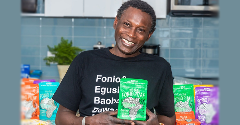
Supergrain fonio expands its reach in US market
11 Jan 2024
More US consumers will find nutritious, climate-smart grain fonio in supermarkets thanks to a new distribution structure for the import’s most prominent commercial brand, Yolélé.
Read more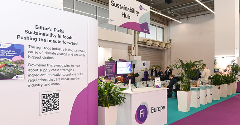
Sustainability meets innovation at Fi Europe 2023's Sustainability Ingredients Zone
9 Jan 2024
Fi Europe’s Sustainable Ingredients Zone showcases ingredients forging a path toward a greener future. Three innovators are redefining what sustainability within the food and beverage industry means, with upcycled products, regenerative agriculture, an...
Read more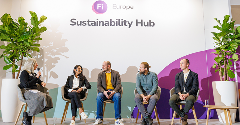
Supermarkets innovate with private label plant-based ranges
9 Jan 2024
Plant-based product ranges are an important part of retailers’ private label innovation efforts – and represent an important way for supermarkets to reduce their environmental impact.
Read more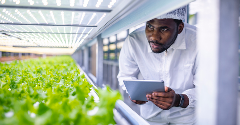
The UK prepares to open food security science centre
2 Jan 2024
Amid global food insecurity, the UK government says it is committed to producing crops resilient to climate change and addressing hunger and malnutrition with a food security science centre.
Read more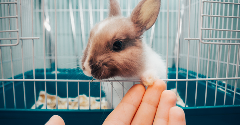
Novel food safety platform could eliminate animal testing
21 Dec 2023
The European Food Safety Authority (EFSA) has introduced a new platform that has the potential to eliminate animal testing in the food industry.
Read more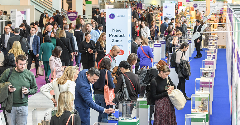
Water-conscious consumers, upcycled food, and tech-driven sustainability: Highlights from Fi Europe, part 2
14 Dec 2023
With climate change becoming a tangible reality, consumers’ environmental concerns are changing. At Fi Europe, market analysts revealed how people are now interested in everyday issues like water shortages and tech-driven solutions such as GM drought-r...
Read more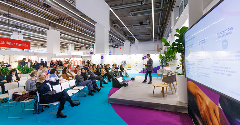
The food industry’s single-use packaging problem
12 Dec 2023
The food industry’s reliance on single-use packaging is a sustainability “sticking point” with viable alternatives not widely available – but new EU rules mean food businesses will remain responsible for the collection and disposal of the packaging the...
Read more